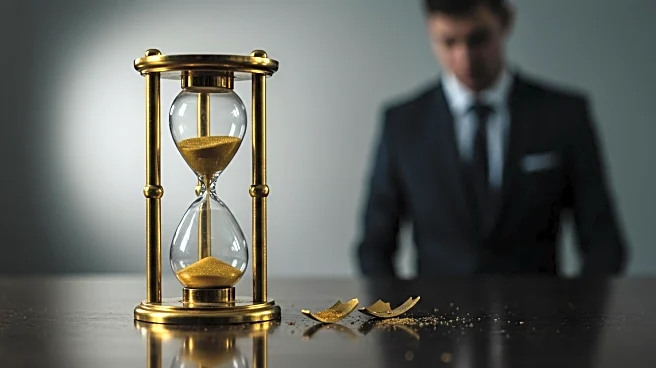What's Happening?
Inigo Philbrick, a former art dealer convicted of defrauding investors and dealers out of millions, is featured in a new BBC documentary titled 'The Great Art Fraud.' Philbrick was sentenced in 2022 to seven years in prison for wire fraud and identity theft, with a forfeiture of $86 million and two paintings. Released early in 2024, Philbrick appears in the documentary expressing remorse for his actions, while also reflecting on his past successes in the art world. The documentary explores Philbrick's background, including his upbringing in Connecticut and his career trajectory, which included an internship at White Cube gallery in London. It also highlights his personal life with his wife, Victoria Baker-Harber, and their time in Vanuatu before his arrest by the FBI.
Why It's Important?
The documentary sheds light on the complexities of art dealing and the potential for fraud within the industry. Philbrick's case serves as a cautionary tale about the risks involved in art investments and the importance of due diligence. The exposure of such high-profile fraud cases can lead to increased scrutiny and regulatory measures in the art market, potentially affecting dealers, investors, and collectors. Philbrick's story also highlights the personal and professional consequences of fraudulent activities, impacting his reputation and future prospects in the art world.
What's Next?
The release of the documentary may prompt further discussions and investigations into art market practices and the measures needed to prevent similar fraud cases. Stakeholders in the art industry, including galleries, auction houses, and investors, may seek to implement stricter controls and transparency to safeguard against fraud. Philbrick's expressed desire to return to art dealing could be met with skepticism, given his past actions, and may require significant efforts to rebuild trust within the industry.
Beyond the Headlines
Philbrick's case raises ethical questions about the balance between ambition and integrity in high-stakes industries like art dealing. The documentary may also explore the cultural fascination with art fraud and the allure of the art market, which can sometimes overshadow the ethical considerations involved. Long-term, this case could influence how art is valued and traded, potentially leading to shifts in market dynamics and the perception of art as an investment.









